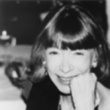The art of the wasted day
Description
More Details
Table of Contents
From the Book
Excerpt
Similar Titles From NoveList
Similar Authors From NoveList
Published Reviews
Booklist Review
*Starred Review* The very thought of a wasted day feels decadent, conditioned as we are to be perpetually busy, caffeinated, slashing our way through to-do lists, reacting to the online onslaught. Memoirist extraordinaire Hampl (The Florist's Daughter, 2007), a master of judiciously elegant vignettes and surprising, slowly unfurling connections, recalls her blissful childhood reveries beneath a grand beech tree in St. Paul, Minnesota, and the shock of learning that daydreaming is a sin. What, she asks, is leisure, exactly? Embarking on a complexly metaphysical and artistic quest, Hampl makes pilgrimages to the homes of patron saints of cloistered serenity, including genre-defining essayist Montaigne, the abbot-scientist Gregor Mendel, and two eighteenth-century British rebels, Sarah Ponsonbyand Lady Eleanor Butler, who lived together in Wales in splendid accord. Hampl revels in the revelations of the reading and writing life, marveling over the intelligence of details and how essays tell a story of perception rather than action. For all the vital, sensuous, enrapturing descriptions that engender a powerful sense of presence, this is also a contemplation of absence and solitude as Hampl tenderly contends with the sudden death of her husband. An exquisite anatomy of mind and an incandescent reflection on nature, being, and rapture.--Seaman, Donna Copyright 2018 Booklist
Publisher's Weekly Review
Novelist Hampl (The Florist's Daughter) offers a wonderfully lavish and leisurely exploration of the art of daydreaming. As an eight-year-old child in a Catholic household, Hampl learned that daydreaming was considered to be one of the "occasions of sin" in the Baltimore Catechism. She made her decision then: "For this a person goes to hell. Okay then." Decades later, retired and widowed, she commits herself to the task of wasting her life "in order to find it." Here, Hampl reveals her true purpose: to write a book for baby boomers who "are approaching the other side." Hampl leads by example. She visits the home of Sarah Ponsonby and Lady Eleanor Butler, two women who discovered that "the act of leaving the world's stage" could be the "best way to attain balance and... integrity." Hampl enjoys leisurely meals in south Moravia where she ponders the patient monastic life of Gregor Mendel. Later, she visits Michel de Montaigne's tower in southwest France. As Hampl rumates and escapes, her late husband is palpably present. Hampl captures art of day dreaming with astonishing simplicity and clarity in this remarkable and touching book. (Apr.) © Copyright PWxyz, LLC. All rights reserved.
Kirkus Book Review
A writer's life is conveyed through "a lens of penetrating inquiry."As a young girl studying the Baltimore Catechism to prepare for her first confession, Hampl (The Florist's Daughter, 2007, etc.) was shocked to learn that daydreaming"this effortless flight of the mind"was a sin. She refused to believe it: daydreaming, her abiding pleasure, "sees things. Claims things, twirls them around, takes a good look," and makes sense of them. In this lucent, tender, and wise memoir, the author celebrates this quiet reflection, which actually requires acute observation and intense, even loving, attention. "Caress the detail, the divine detail," Nabokov commanded. "And because the detail is divine," Hampl discovers, "if you caress it into life, the world lost or ignored, the world ruined or devalued, comes to life." As in her previous memoirs, the author reports on journeys, both inward among memories and outwardto France, Wales, and on the Mississippi Riveras she works at "the job of being human." She is never really alone, "even though being alone is the one thing we recognize as our chance for authenticity, for surprising ourselves out of predictability." Her traveling companions include Whitman, Dickinson, Augustine, Gregor Mendel, Colette, Virginia Woolf, and, notably, Montaigne, the elegant 16th-century writer who withdrew from public life "to muse about how to dieor was it how to live?" Montaigne invented a new literary genre, the essay, liberating writing "to be wild, untamed, eccentric." His goal, Hampl writes, "was to renew the springs of the first-person voice bounding across the field of what we keep calling, against our uncertainty, reality." His goal is Hampl's, as well: memoir, she knows, is "not a reminiscence, but a quest." Although reveling in solitude, the author is no stranger to loneliness; her husband's recent, unexpected death has left her bereft. Grief pulses through the memoir, a feeling different, entirely, from "the solitude within the mind.""Loneliness eats away at you," writes the author. "Solitude fills and fills you." A captivating and revelatory memoir. Copyright Kirkus Reviews, used with permission.
Booklist Reviews
*Starred Review* The very thought of a "wasted day" feels decadent, conditioned as we are to be perpetually busy, caffeinated, slashing our way through to-do lists, reacting to the online onslaught. Memoirist extraordinaire Hampl (The Florist's Daughter, 2007), a master of judiciously elegant vignettes and surprising, slowly unfurling connections, recalls her blissful childhood reveries beneath a grand beech tree in St. Paul, Minnesota, and the shock of learning that daydreaming is a sin. What, she asks, is leisure, exactly? Embarking on a complexly metaphysical and artistic quest, Hampl makes pilgrimages to the homes of patron saints of cloistered serenity, including genre-defining essayist Montaigne, the abbot-scientist Gregor Mendel, and two eighteenth-century British rebels, Sarah Ponsonbyand Lady Eleanor Butler, who lived together in Wales in splendid accord. Hampl revels in the revelations of the reading and writing life, marveling over the "intelligence of details" and how essays tell a "story of perception rather than action." For all the vital, sensuous, enrapturing descriptions that engender a powerful sense of presence, this is also a contemplation of absence and solitude as Hampl tenderly contends with the sudden death of her husband. An exquisite anatomy of mind and an incandescent reflection on nature, being, and rapture. Copyright 2018 Booklist Reviews.
Publishers Weekly Reviews
Novelist Hampl (The Florist's Daughter) offers a wonderfully lavish and leisurely exploration of the art of daydreaming. As an eight-year-old child in a Catholic household, Hampl learned that daydreaming was considered to be one of the "occasions of sin" in the Baltimore Catechism. She made her decision then: "For this a person goes to hell. Okay then." Decades later, retired and widowed, she commits herself to the task of wasting her life "in order to find it." Here, Hampl reveals her true purpose: to write a book for baby boomers who "are approaching the other side." Hampl leads by example. She visits the home of Sarah Ponsonby and Lady Eleanor Butler, two women who discovered that "the act of leaving the world's stage" could be the "best way to attain balance and... integrity." Hampl enjoys leisurely meals in south Moravia where she ponders the patient monastic life of Gregor Mendel. Later, she visits Michel de Montaigne's tower in southwest France. As Hampl rumates and escapes, her late husband is palpably present. Hampl captures art of day dreaming with astonishing simplicity and clarity in this remarkable and touching book. (Apr.)
Copyright 2018 Publishers Weekly.






























